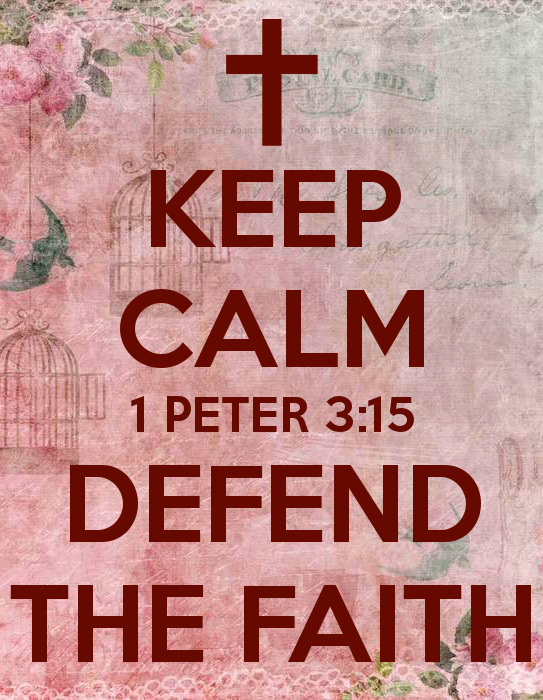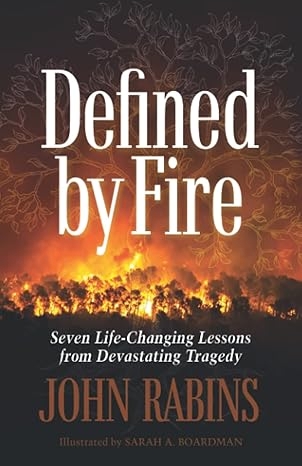SOZO - Healing is a Choice
March 23, 2025Pastor Patrick presented today's message, "SOZO - Healing is a Choice." A video of today's message is here on YouTube.
For a few previous comments on the topic, see my 3/13/22 essay.
There are several Biblical Hebrew words that mean "bitter" or the like. One is rosh (רֹאשׁ) which typically is more physical as in a bitter flavor or even poisonous. But it can also be used to refer to bitterness, even poisonous, more metaphorically as in Deuteronomy 29:18, "Make sure there is no man or woman, clan or tribe among you today whose heart turns away from the LORD our God to go and worship the gods of those nations; make sure there is no root among you that produces such bitter poison." This is echoed in Hebrews 12:15, "See to it that no one falls short of the grace of God and that no bitter root grows up to cause trouble and defile many." Both are NIV. Likening it to an actual poison, it's quite clear in both testaments that bitterness is not healthy.
 Another Hebrew word meaning bitter is marar (מָרַר). Marar is also used in both the sense of physical as well as metaphysical. For an example of the latter, see Exodus 1:14, "They [the Egyptians] made their lives [the Israelites' lives] bitter with harsh labor in brick and mortar and with all kinds of work in the fields; in all their harsh labor the Egyptians worked them ruthlessly." With Passover coming up, it's interesting to note that maror (noun form) is the "bitter herb" that is part of the Passover Seder to remind the participants of the Israelites' bitter life as slaves in Egypt. (Pictured here.)
Another Hebrew word meaning bitter is marar (מָרַר). Marar is also used in both the sense of physical as well as metaphysical. For an example of the latter, see Exodus 1:14, "They [the Egyptians] made their lives [the Israelites' lives] bitter with harsh labor in brick and mortar and with all kinds of work in the fields; in all their harsh labor the Egyptians worked them ruthlessly." With Passover coming up, it's interesting to note that maror (noun form) is the "bitter herb" that is part of the Passover Seder to remind the participants of the Israelites' bitter life as slaves in Egypt. (Pictured here.)In the sense of bearing a grudge, consider the Hebrew word natar (נָטַר), to bear a grudge. It's used in what some might refer to as the greatest commandment, "You shall not take vengeance or bear a grudge against the sons of your own people, but you shall love your neighbor as yourself: I am the Lord" (Leviticus 19:18). Pastor Patrick pointed out today that holding a grudge (remaining bitter) is simply not healthy for the person carrying it as well as the person to whom it's directed.
Having no recollection of the Greek word Patrick mentioned, diasozo (διασῴζω), I looked it up. He said the meaning was healed completely, thoroughly. For example, Matthew 14:36, "And besought him that they might only touch the hem of his garment: and as many as touched were made perfectly whole [diasozo'd]." (KJV.)
There are two Hebrew words that refer to saving in a similar way: yasha (יָשַׁע) and natsal (נָצַל). Yasha is a primitive root that refers to salvation, deliverance, or made whole. Here's an example where Moses yasha'd Midianite daughters at a well, Exodus 2:17, "Some shepherds came along and drove them [the daughters] away, but Moses got up and came to their rescue [yasha'd them] and watered their flock." Likewise, natsal, which has a "snatch from the jaws of a predator" notion includes the idea of rescue or deliverance, such as in Genesis 32:30, "So Jacob called the place Peniel, saying, 'It is because I saw God face to face, and yet my life was spared [natsal'd].'"
Patrick mentioned that God was refered to as "one who heals" in the Old Testament, Yahweh Raphe (rah-fah', רָפָא). Here's what Strong's Lexicon has to say about rapha: "In ancient Israel, healing was often seen as a divine act, with God being the ultimate healer. The Israelites believed that physical ailments could be linked to spiritual conditions, and thus, healing was not only a physical restoration but also a spiritual renewal. Priests and prophets often played roles in the healing process, and rituals or prayers were sometimes involved. The concept of God as a healer is deeply embedded in the covenant relationship between God and His people, where obedience to God's commandments was associated with health and prosperity." The reference is in Exodus 15:26, "He said, 'If you listen carefully to the Lord your God and do what is right in his eyes, if you pay attention to his commands and keep all his decrees, I will not bring on you any of the diseases I brought on the Egyptians, for I am the Lord, who heals you.'". Here are some other Old Testament verses about healing (and health):
Healing in the OT is often associated with repentance and forgiveness, for example, see Psalm 32:1-5.
Friends and family can support healing, as in Proverbs 17:17, "A friend loves at all times, and a brother is born for a time of adversity."
Psalm 30:2, "O Lord my God, I cried to you for help, and you have healed me."
Psalm 147:3, "He heals the brokenhearted and binds up their wounds."
Proverbs 3:7-8, "Be not wise in your own eyes; fear the Lord, and turn away from evil. It will be healing to your flesh and refreshment to your bones."
Proverbs 16:24, "Gracious words are like a honeycomb, sweetness to the soul and health to the body."
Psalm 103:2-4, "Bless the Lord, O my soul, and forget not all his benefits, who forgives all your iniquity, who heals all your diseases, who redeems your life from the pit, who crowns you with steadfast love and mercy."
Psalm 30::2, "O LORD my God, I cried out to You, And You healed me."
Bonus
Testament: The Story of Moses (TV series)
I started watching Testament: The Story of Moses a couple weeks ago (on Netflix). I picked up on a few things...
In the Midrash (compilation of rabbinic Bible explications, the word itself means "textual interpretation") suggests that Moses' mother sees at his birth that he "is good." Any statement like "it is good" using the Hebrew word tove (טוֹב) this way hasn't occurred since early in Genesis when God describes parts of Creation as "good." It's a serious "good." (It's not that the word is rare; it occurs over 500 times in the Old Testament.)
The series is actually a docudrama which, in this case, means that theologians and historians interject commentary now and then as the story progresses.
The commentators suggested that the word ark (tay-VAH, תֵּבָה) implies "a new beginning" as with Noah's Ark as well as Moses' basket. We have previously discussed the notion that the Biblical "ark" (tay-VAH) is a rudderless, powerless ship guided and powered entirely by God.
 One question raised by the series in my mind is, "what's the geographical relationship between Midian, where Moses goes after fleeing Egypt, and Mt Sinai where Moses receives the Ten Commandments?" Turns out the series is at least partly correct, they are at least close to each other, but not necessarily the same area. In Numbers 10:29-31, Moses' Midianite in-laws leave Sinai to return to Midian which suggests they're somewhat different. The answer depends partly on where one places Mt. Sinai; there is some disagreement. Some say Mt. Sinai is on the same side (East side) of the Gulf of Araba (arm of the Red Sea) in the "greater Midian area" while others say the mountain is on the West side of the Gulf, not in Midian proper. In either case, certainly in the latter case, where Moses went in Midian was probably farther from Egypt than is Mt Sinai.
One question raised by the series in my mind is, "what's the geographical relationship between Midian, where Moses goes after fleeing Egypt, and Mt Sinai where Moses receives the Ten Commandments?" Turns out the series is at least partly correct, they are at least close to each other, but not necessarily the same area. In Numbers 10:29-31, Moses' Midianite in-laws leave Sinai to return to Midian which suggests they're somewhat different. The answer depends partly on where one places Mt. Sinai; there is some disagreement. Some say Mt. Sinai is on the same side (East side) of the Gulf of Araba (arm of the Red Sea) in the "greater Midian area" while others say the mountain is on the West side of the Gulf, not in Midian proper. In either case, certainly in the latter case, where Moses went in Midian was probably farther from Egypt than is Mt Sinai.I'll keep watching the series...
Bonus2
God's Names/Attributes
Many names are used in the Old Testament for God. The "big two" are Elohim and Adonai/Jehovah/Yahweh. For a run down on those, see the 9/12/2021 WDTTS Essay.
 David Nekrutman has a 3-minute video that describes the above two names in perhaps a more useful way for understanding. He suggests Elohim, used about 36 times in the Genesis 1 Creation story is "The Ultimate Power" or "Ultimate Source," the God of Justice. Starting in Genesis 2, God begins to be called Jehovah or Adonai, "The Eternal," God of Mercy. For more on that, watch the YouTube video (the video also has some fun info/images about Masada, the city on a mountain top). In the video, Nekrutman points out that the name/words actually mean(s) or refers to all three tenses of the verb To Be. This furthers explains the name God gave himself to Moses at the Burning Bush, "I am what I am." The Hebrew is not entirely clear as it can be translated in all three tenses.
David Nekrutman has a 3-minute video that describes the above two names in perhaps a more useful way for understanding. He suggests Elohim, used about 36 times in the Genesis 1 Creation story is "The Ultimate Power" or "Ultimate Source," the God of Justice. Starting in Genesis 2, God begins to be called Jehovah or Adonai, "The Eternal," God of Mercy. For more on that, watch the YouTube video (the video also has some fun info/images about Masada, the city on a mountain top). In the video, Nekrutman points out that the name/words actually mean(s) or refers to all three tenses of the verb To Be. This furthers explains the name God gave himself to Moses at the Burning Bush, "I am what I am." The Hebrew is not entirely clear as it can be translated in all three tenses.What I really want to do here is create a complete list of the names applied to God in the Old Testament and what these names point to as attributes of God.
Elohim (discussed above)
Adonai/Jehovah/Yahweh (discussed above)
EL - God
EL SHADDAI - All Sufficient
YAHWEH-JIREH - Provider
YAHWEH-ROPHE - Healer
YAHWEH-NISSI - Our Banner
YAHWEH-M’KADDESH - Sanctifier (makes whole)
YAHWEH-SHALOM - Peace
YAHWEH ELOHIM: Lord God
YAHWEH-TSIDKENU - Our Righteousness
YAHWEH-ROHI - Shepherd
YAHWEH-SHAMMAH - Is There
YAHWEH-SABAOTH - of Hosts
EL ELYON - Most High
ABHIR - Mighty One
KADOSH - Holy One
SHAPHAT - Judge
EL ROI - God Sees
KANNA - Jealous (zealous)
PALET - Deliverer
YESHA (Y'shua) - Savior
GAOL - Redeemer
MAGEN - Shield
EYALUTH - Strength
TSADDIQ - Righteous One
EL-OLAM - Everlasting
EL-BERITH - God of the Covenant
EL-GIBHOR - Mighty God
ZUR - Our Rock
MELEKH - King
This list was taken from Bible Facts Press: 32 Names of God and Their Meaning. I encourage you to click on that link for the supporting detail.
Bonus3
Apologetics (not today's "apologizing")
I watched a video this week put out by Focus on the Family (FOTF): Episode 1: The Importance of Apologetics. It's part 1 of a 5-part series called "Raising Your Kids to Defend Their Faith." Jim Daly, President FOTF, interviews Natasha Crain, author of Talking with Your Kids about God.
Ms. Crain made a great statement, roughly: "If my kid had a serious medical problem, I would take the time to learn everything I can to help them and do what's necessary. Should I not do the same for their faith?" She discovered Apologetics, which does exactly that for defending the faith. The video (link just above) is only 8 minutes long; watch it.
 She noted that one of the biggest reasons kids of today reject faith is science. The common misunderstanding is that science disproves (or at least conflicts with) religion. That's not true, but it's a topic rarely approached with kids by religious leaders. I couldn't agree more. I agree that it's both a big problem, that there are very good answers to those concerns, and that these answers are rarely shared with young people. Making this an even sadder state of affairs is that kids of today, as a whole, are not exactly good at science either.
She noted that one of the biggest reasons kids of today reject faith is science. The common misunderstanding is that science disproves (or at least conflicts with) religion. That's not true, but it's a topic rarely approached with kids by religious leaders. I couldn't agree more. I agree that it's both a big problem, that there are very good answers to those concerns, and that these answers are rarely shared with young people. Making this an even sadder state of affairs is that kids of today, as a whole, are not exactly good at science either.I'm proud to say I developed an entire course with my Dad way back when our kids were young adults that tackled this very question. The title of the course was "Is God Expanding, too?" and we dove fairly deeply into the science-religion arena. I could be ready to "do it again" in a matter of weeks should your church, home school organization, or other group want to offer such a course.
 "Apologetics" comes from the Greek word ah-po-lo-GEE-ah (ἀπολογία) which means "to give a defense." It's interesting that our idea of an apology today is quite different.
"Apologetics" comes from the Greek word ah-po-lo-GEE-ah (ἀπολογία) which means "to give a defense." It's interesting that our idea of an apology today is quite different.See 1 Peter 3:15, "But sanctify the Lord God in your hearts, and always be ready to give a defense [ἀπολογία] to everyone who asks you a reason for the hope that is in you, with meekness and fear;" (NKJV). The image at right comes from "Bellator Christi: Is 1 Peter 3:15 Accurately Used as an Apologetic Text?".
"I believe in Christianity as I believe that the Sun has risen not only because I see it but because by it I see everything else.” C.S. Lewis.
Here's a website you could check out: Apologetics, Inc.."
And here's an interesting article that defends against criticisms of the Old Testament in particular: Cherishing and Defending the Old Testament.
Bonus4
Lessons About Freedom from the 2013 Black Forest Fire
 My go-to bookstore, Covered Treasures Bookstore in Monument, CO, had a book-signing this past Saturday where I met a local author and got a signed copy of two of his books. The one I read over the weekend (short, at about 140 pages) struck me as being quite relevant to the Freedom messages we've had at church the previous three Sundays.
My go-to bookstore, Covered Treasures Bookstore in Monument, CO, had a book-signing this past Saturday where I met a local author and got a signed copy of two of his books. The one I read over the weekend (short, at about 140 pages) struck me as being quite relevant to the Freedom messages we've had at church the previous three Sundays.The book is Defined by Fire: Seven Life-Changing Lessons from Devastating Tragedy by John Rabins. He lost his home and all his properties in the 2013 Black Forest Fire and his father died that same day back in California. Black Forest is both an unincorporated area northeast of Colorado Springs, CO as well as a general forested area that when seen from the air looks very dark - almost black.
In his book, John outlines the seven lessons about life he learned as a result of these two tragedies. I think his lessons could also be titled something like "What Real Freedom is About."
Here are the seven lessons (just below). As you go through them, re-read them replacing "I am not defined by" with "I am free of worrying about" and see what you think.
1. I am not defined by what I own; rather, I'm defined by Him who owns me. [I'm free of worrying about what I own.]
2. I am not defined by what I've done; rather, I'm defined by what He has done. [I'm free of worrying about what I've done.]
3. I am not defined by my tragedies and dark places; rather, I'm defined by Him who carries me through tragedy and is the Light in my dark places. [I'm free of worrying about my tragedies.]
4. I am not defined by what I think; rather, I'm defined by what He thinks. [I'm free of worrying about what I think.]
5. I am not defined by what you think (or anyone else, for that matter); rather, I'm defined by what He thinks. [I'm free of worrying about what others think.]
6. I am not defined by what I control; rather, I'm defined by Him who controls everything. [I'm free of worrying about what I control.]
7. I am not defined by who I know; rather, I'm defined by Him who knows me best. [I'm free of worrying about who I know.]
After you read the book, let me know what you think of my "freedom" take on his seven lessons. Email: Torah@JF2.com.